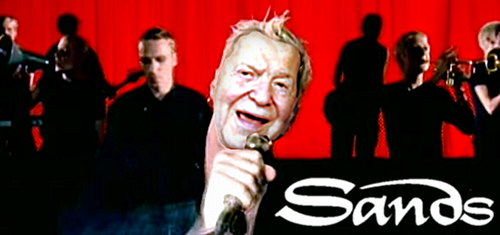 Casino operator Las Vegas Sands saw business slump last year but believes the struggling Macau casino market is showing signs of stabilization.
Casino operator Las Vegas Sands saw business slump last year but believes the struggling Macau casino market is showing signs of stabilization.
In the final quarter of 2015, Sands revenue fell 16.2% to $2.86b, while adjusted earnings fell nearly 22% to $1.05b and net income tumbled 35.4% to $465.8m. For the year as a whole, Sands revenue fell to $11.7b from $14.6b in 2014, while net income fell over 30% to $1.97b.
Sands China remains the prime engine of Las Vegas Sands revenue as well as the source of its current declines. Macau operations reported revenue down 21.7% to $1.66b in Q4 while profit fell 29.3% to $378m.
Macau’s well-publicized VIP slump was in full evidence, with turnover falling 18.6% at Sands Macao, 20.8% at the Venetian Macao, 51% at Sands Cotai Central and 60% at the Four Seasons. Mass market gaming was also down across the board, falling 21.5% at Sands Cotai, 18.6% at Sands Macao, 17.3% at the Venetian and 8.5% at the Four Seasons.
In Singapore, Marina Bay Sands reported overall revenue down 16% to $704m as gaming revenue slipped 21% to $533m. VIP turnover was actually up 0.7% but win rate fell 1.2 points, while mass table drop fell 11%.
Sands blamed much of MBS’ decline on the strengthening US dollar, claiming that the property set a record mass gaming win-per-day in local currency terms. The property also enjoyed a $90m tax refund in Q4 2014 that skewed this year’s results.
Things were brighter in Las Vegas, which reported revenue up 10.3% to $400.1m in Q4. Gaming revenue was flat, as a 13.8% fall in table drop was offset by a 16% rise in slots handle. Thankfully, rooms and food & beverage were both up over 20%, helping drive a 23.5% rise in the Vegas operations’ operating income.
Sands Bethlehem in Pennsylvania reported total revenue up 4.7% to $140m thanks to a nearly 5% rise in gaming revenue. But an increase in promotional allowances resulted in a 6.2% fall in operating income.
SHELDON KNOWS BILLIONS
Sands chairman Sheldon Adelson (pictured, at microphone), who knows a thing or two about billions, celebrating the Venetian Macao as the only Macau property to generate over $1b in earnings last year, although Marina Bay Sands also joined that $1b club.
Adelson continues to claim that the Macau mass market has stabilized, although he cautioned that (a) he was speaking for Sands, not for other operators, and (b) “prognostications are very hard to do, particularly about the future.”
In contrast with Wynn Resorts’ deadline difficulties, Adelson said Sands’ new Parisian Macao could potentially be looking at a partial early opening. Adelson noted that 1,000 of the property’s rooms were already being fitted out with furniture eight months ahead of the property’s scheduled September opening date.
Sands said it realized $215m in cost savings, primarily through payroll, marketing and non-gaming operating expenses. Among the payroll casualties was a non-gaming entertainment booker whose deals resulted in “multi-million dollar losses.” Adelson said the; booker called these deals “brand builders,” leading Adelson to conclude: “we already have brand.”
EXPANSION PLANS
Adelson said Sands would be a “prime candidate” for building a casino in north Jersey, should Atlantic City operators fail to submit adequate bids for the two new casino licenses in the northern part of the state. However, Sands prez Rob Goldstein insisted that Sands was only interested in a major integrated resort, not an “overtaxed slots barn.” Adelson also confirmed interest in the Atlanta market.
Adelson mentioned Brazil as “potentially a very good opportunity” despite concerns over the country’s economy. Adelson said the company had been “in touch” with someone already working in Brazil about a potential tie-up.
As for Asian expansion, Adelson reaffirmed Sands’ ongoing lobbying efforts in Vietnam, Japan, Thailand and South Korea. Adelson noted the new government in Taiwan didn’t appear friendly toward gambling so the company would “cross off” that country “for the time being.” Adelson took this setback in stride, philosophically observing that “the Asians don’t move very fast.”
